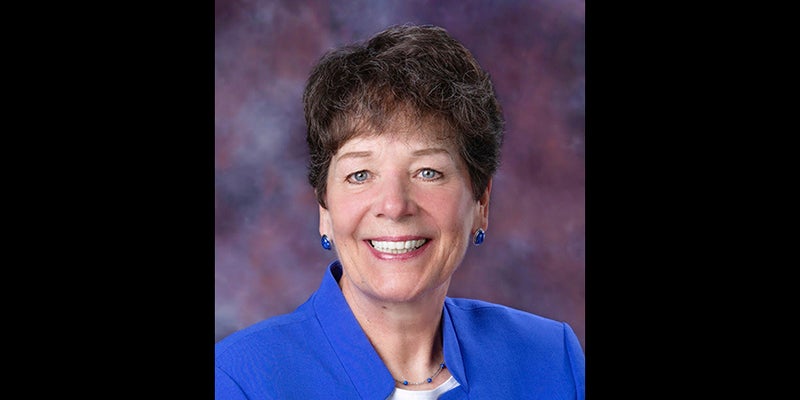Bipartisan meetings, informal conversations seek common ground on Minnesota’s energy future
Published 8:11 am Thursday, August 15, 2019
By Elizabeth Dunbar
MPR News/90.1 FM
Despite meeting a renewable energy standard passed a dozen years ago, some Minnesota elected officials from both parties are trying to figure out how to do more to cut emissions that contribute to climate change.
The Legislature went home earlier this year without passing any significant energy initiatives, but the work hasn’t stopped. Working behind the scenes, some lawmakers hope to pass legislation next year to both address climate change and spark innovation in clean energy technology.

A wind turbine from the Pleasant Valley Wind Farm near Sargeant dwarfs a private windmill in this 2015 photo.
Herald file photo
“Those who get in early and become the Silicon Valley of renewable energy, renewable energy research … are going to be the winners,” said Sen. Dave Senjem, R-Rochester, who was part of a delegation of about 20 lawmakers, industry leaders, state regulators and others who visited Germany last month as part of an ongoing learning exchange.
Besides the delegation meetups, Senjem for the past year has been hosting monthly gatherings in the party room of his St. Paul apartment to give Republicans, Democrats and industry leaders a place to have safe conversations about Minnesota’s energy future.
Attendees talk over pizza and drinks and wrap up their discussions over bowls of ice cream.
“If you can’t play together, you can’t work together,” Senjem said. “You have to get to know each other to really gain the trust and the interrelationships that are necessary to make the Legislature work, no matter what the topic.”
Senjem said he mostly focuses on the economic opportunities for Minnesota in embracing clean energy when trying to persuade Republican colleagues.
Legislative mandates, he acknowledges, aren’t popular among Republicans.
At the same time, he said, people are demanding it.
“More and more I think the people are going to mandate, if you will, clean energy,” said Senjem, adding that many Minnesota-based companies — Hormel, General Mills, Target — are investing in renewable energy because it’s good for business.
Related:Minnesota pledges 100 percent carbon-free energy. Is it possible?
Walz energy plan:Carbon-free electricity by 2050
Earlier this year, the Republican-controlled Senate opposed a plan by Gov. Tim Walz and DFL House leaders to require utilities to generate all their power from carbon-free sources by 2050, when U.N. climate experts say all greenhouse gas emissions should be eliminated to avoid the worst effects of climate change.
Senjem and other lawmakers are pushing legislation called “Clean Energy First” as an alternative.
The idea is to make sure utilities are prioritizing clean energy sources — including efficiency and storage — when adding capacity or replacing a retiring power plant. But the bill also gives utilities options if clean energy isn’t affordable or reliable.
Still, some lawmakers don’t appear convinced the legislation is needed, especially when the state’s largest utility, Xcel Energy, has already announced plans to retire all its coal plants in Minnesota by 2030 and go carbon-free by 2050.
“I’m really losing sight of why it is that we must do this,” said Sen. Erik Simonson, DFL-Duluth, during a Legislative Energy Commission meeting late last month.
“If we’re already going in that direction, the private sector is already doing it, what’s the point?” added Sen. David Osmek, R-Mound, who chairs the Senate energy committee.
The divided Legislature complicates the state’s ability to pass new clean energy Legislation. States including Washington, New York and New Mexico this year passed laws requiring more carbon-free energy, but all have Democratic governors with Democrats in control of their legislatures, according to an analysis by Stateline, a publication that follows state legislative action.
Minnesota’s current clean energy standard — 25 percent renewable energy by 2025 — was the product of a split Legislature and a Republican governor. But a lot has changed since then. For example, climate change has become a polarizing issue.
“I think we have to have a shared commitment to making Minnesota a leader,” said Lt. Gov. Peggy Flanagan, who led the delegation to Germany in July to see first-hand some clean energy projects that could be replicated here. Lawmakers from both parties joined her, along with farmers, academics and leaders from the electricity sector.
“We will reconvene in the coming months and figure out together what we learned and what are some of the policies in 2020 we’d like to try to advance, but really, whatever we try to decide to do has to last even longer than our administration and into the future,” she said.
Flanagan said if members of both parties can agree that Minnesota can and should lead on clean energy, it doesn’t matter whether it’s climate change or economics driving the action. Flanagan didn’t confirm whether the administration will push again for 100 percent clean electricity or something else.





